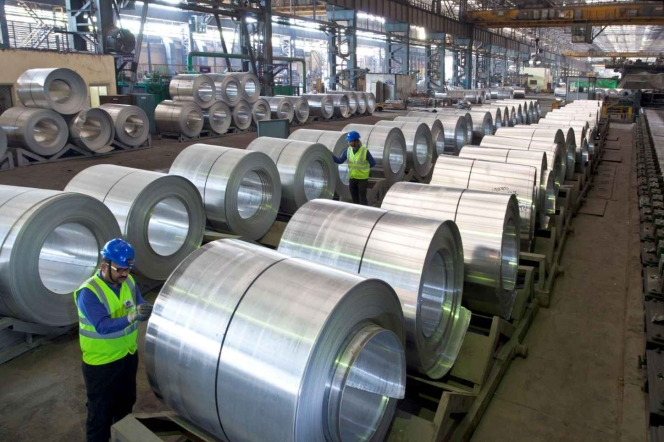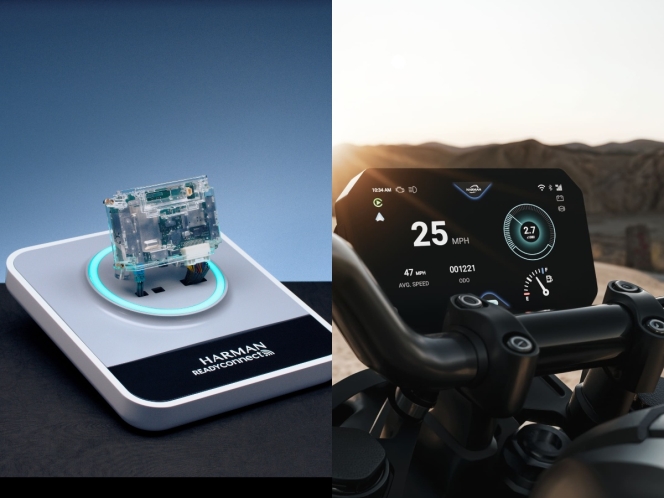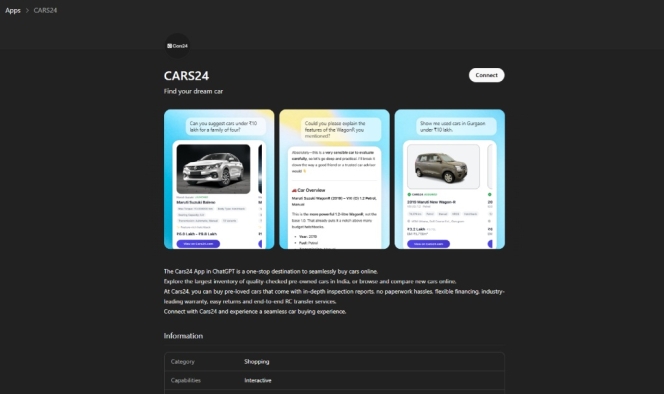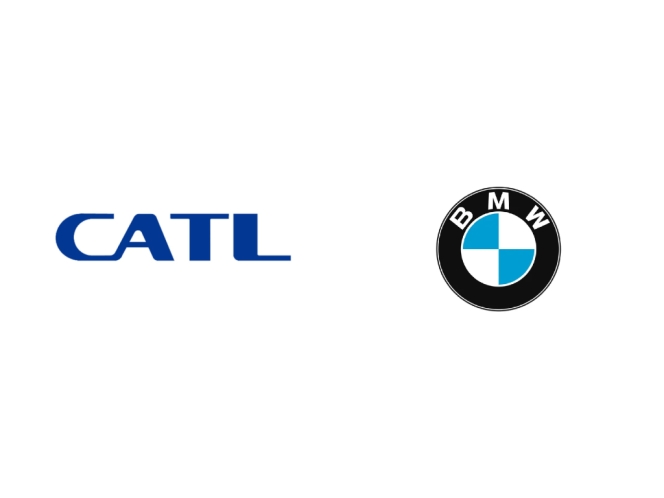Aluminium Can Play A Pivotal Role In The Changing Face Of The Automotive Sector
- By MT Bureau
- October 13, 2020


Currently, India’s foundry market for automotive components is small (only 10 percent of total foundry market — 10 million of cast iron + aluminium) in comparison to USA’s foundry market, which is at 14 million tonnes per annum, of which 3.3 million is aluminium (24 percent). With an increasing focus on higher performance with better safety and lower emission, this gap is going to shrink in the coming years, anticipates Ajay Kapur, CEO – Aluminium & Power Business, Vedanta Aluminium.
“There is immense scope for Indian aluminium producers to tap into the emerging market in the automotive sector,” said Kapur. Vedanta Aluminium was the first in India to supply PFA (primary foundry alloy) to the domestic auto sector. Before, the launch of PFA by the company, India’s entire PFA demand was being met through imports, even though the country has the world’s second-largest aluminium production capacity. Looking at the potential of the auto market and its import dependency, the company decided to tap into the opportunity and develop indigenous capabilities at its state-of-the-art facilities in Jharsuguda and BALCO to meet that demand. Currently, the company has a PFA casting capacity of 240KT spread across its plants in Odisha and Chhattisgarh.
“Primary aluminium producers develop PFAs which are customised to suit the exact needs of automakers in terms of performance, strength, durability, etc. Significant R&D and technical expertise go into developing PFAs, resulting in excellent metal quality and outstanding castability, which makes these alloys the preferred choice for the automotive industry,” explained Kapur. PFAs are ideal for aluminium alloy wheels, cylinder heads and brakes. The company also anticipates that with an increased focus on reduction of vehicle weight with higher safety performance, automotive parts critical to safety will be made from PFA instead of cast iron to offer higher strength and nearly double absorption of crash energy. “Besides, aluminium PFAs will always have the added advantage of cost-saving on fuel and maintenance,” added Kapur.
Vedanta Aluminium has started steadily supplying PFAs to OEMs and ancillaries in wheel manufacturing in India. “Our proactive move to expand business on this front helped us on-board some of the most reputed equipment manufacturers and auto ancillaries as our clients, and we have received a very positive response from them. Encouraged by that, we will soon look to expand our alloy portfolio for supporting manufacturing of cylinder heads, ABS brakes and certain key applications where traditional materials can easily get substituted with aluminium alloy. We are also exploring prospects of long-term investments by auto ancillaries near our aluminium smelters so that they may leverage cost savings in terms of freight, re-melting and electricity,” said Kapur.

The company, according to him, is well-positioned to cater to the current and emerging needs of the Indian auto sector, offering a broad range of products that find usage across the automotive value chain – from casting to extrusion. “When choosing suppliers for alloys, automotive players should look for companies having high-quality casting facilities, sophisticated R&D facilities and technological prowess for developing customised high-performance alloys for their specific needs, and finally, having robust after-sales technical support; USPs that have earned us the trust of our clients,” he added.
Aluminium is the second most used metal in the world after steel, today, and, according to Kapur, it has the potential to become the most important commercial metal in the future. “Most developed countries have already designated aluminium as a core industry. Aluminium holds strategic importance for the economy as the metal of choice for all kinds of transportation, power, aerospace, defence, building and construction needs. So, given the role it plays in supporting the core sectors meet the Government’s ‘Make in India’ initiative, we expect its application to only expand with time,” said Kapur.
The metal’s usage in the transportation sector has been rapidly increasing as it offers an environment-friendly and cost-effective way to increase performance, boost fuel economy and reduce emissions while maintaining or improving safety and durability. Aluminium is substantially lighter than its counterparts, offering a significant reduction in weight, which has a direct impact on fuel consumption and carbon emissions.

The metal also has a higher strength-to-weight ratio compared to traditional materials that enable it to absorb twice the crash energy of mild steel, ensuring that vehicular performance enhancements do not come at the cost of safety. “Further, nearly 90 percent of all the aluminium used in a vehicle is recycled at the end of its lifecycle. The energy required to recycle aluminium is only five percent of the energy required to produce the metal. With all these advantages, aluminium can play a pivotal role in the changing face of the automotive sector,” said Kapur.

Aluminium alloys are used by the Indian auto industry majorly as alloy wheels. Around 95 percent of two-wheelers include aluminium, averaging at 7kg per bike, taking total consumption of aluminium alloy in this segment to 115KTPA (kilo tons per annum). Whereas, only 20 percent of four-wheelers use aluminium, majorly in high-end models, which max out at 40kg per car. “The crux of the matter is, in India, we are yet to explore more applications of aluminium in the automotive industry akin to our global peers. For example, in developed countries, around 21 PFAs are used in the automotive segment to achieve light-weighting in the form of various auto parts and components. In India, we majorly use PFAs only for manufacturing alloy wheels and to some extent, for cylinder heads. So, there is immense potential for usage of aluminium in other auto parts like engine, suspension, front end carrier, instrument panel support, rear frame, chassis and many more,” said Kapur.
Shortly, the company expands its alloy portfolio for supporting manufacturing of cylinder heads, ABS brakes and certain other applications where currently steel or iron is being used but can be substituted by suitable aluminium alloys to provide additional benefits. As the market for aluminium alloys in automotive segment expands with inclusion of newer applications, Vedanta Aluminium will look for opportunities to leverage its technological expertise and R&D capabilities to develop products customised to the needs of the market. Vedanta Aluminium is also open to collaborating with the downstream industry, to unlock the entire potential of aluminium used in the auto sector and cater to the rapidly evolving aluminium requirements of the Indian automotive industry.
In the Indian automotive market, one of the biggest challenges faced today is the increasing imports of auto components from China and other countries. The size of the auto components imports was USD 17.6 billion in FY19. Asia, the largest source of imports for Indian auto-components, had a share of 61 percent followed by Europe at 29 percent; North America at eight percent; Latin America and Africa at one percent each in FY19. China, with 27 percent, enjoyed the status of the largest exporter in the Indian automotive market.
“The potential of the aluminium industry should be acknowledged and recognised as a core sector with a National Aluminium Policy that will encourage, protect and boost the domestic aluminium industry. The domestic capability needs to be harnessed for critical sectors of national importance like defence, aerospace, aviation, transportation, infrastructure, electrification, housing, etc. We must make the vision of ‘Make in India’ a ground reality in these sectors, leveraging the potential of the entire aluminium value chain, from mining to end usage. Besides enhancing domestic capacity and reducing import dependency and subsequently trade deficit, it will also generate huge employment opportunities in our country which has a deep talent pool that needs to be capitalised for the realisation of our vision of a USD5 trillion economy. We are on the right path, but there is still a long way to go,” said Kapur.

The global economy is swiftly moving towards a cleaner, greener and more sustainable lifestyle. For more than a decade now, concerns about fuel efficiency have encouraged OEMs to replace steel with aluminium in vehicle bodies, doors, trunks, hoods, bumpers, crash boxes, brakes and wheels. With the advent of electric vehicles (EV), OEMs worldwide are focusing on exploring and applying new uses of aluminium. The need for lightweight battery casings and heat exchangers in electric vehicles, combined with autonomous vehicles’ demands for high visibility and structural integrity, is expected to exponentially increase the use of aluminium in cars, trucks and buses from now on. “Using aluminium in EVs has several advantages, foremost amongst which is the distance travelled per charge. Lighter the vehicle, the longer its range. Coming to better battery life, thanks to the metal’s thermal and anticorrosion properties, aluminium is ideal for battery frames. Demand for aluminium will also rise on account of infrastructure for serving EVs since the metal is commonly used as a housing material for EVs charging stations as well. While India is waking up to this future of automobiles, partnerships between different automotive industry bodies/institutions and auto companies for sharing knowledge and expertise will help fast-track development of electric vehicles in the country,” said Kapur. MT
- HARMAN
- Samsung Electronics Co
- Viasat
- MWC Barcelona 2026
- Dhanaji Khade
- Sandeep Moorthy
- Snapdragon
- Shahriar Ravari
- Ready Ride
HARMAN Unveils Satellite-Enabled And Two-Wheeler Connectivity Solutions At MWC Barcelona 2026
- By MT Bureau
- March 03, 2026

HARMAN, a subsidiary of Samsung Electronics Co., Ltd., has introduced two connectivity platforms at MWC Barcelona 2026 designed to expand vehicle communications across terrestrial, satellite and two-wheeler segments.
In collaboration with Viasat, HARMAN has introduced in-cabin voice calling via satellite connectivity. The solution uses HARMAN’s Ready Connect Telematics Control Unit (TCU) and Viasat’s Mobile Satellite Services (MSS) constellation to provide communication in areas with no cellular coverage.
The system supports the 3GPP NB-NTN standard, allowing drivers to contact emergency services or roadside assistance in remote regions. The hardware utilises the Qualcomm Snapdragon Modem‑RF Gen 2 system for connectivity management. A future roadmap includes moving towards broadband satellite services to enable high-bandwidth media streaming for software-defined vehicles.
HARMAN also unveiled Ready Ride, its first end-to-end connectivity platform specifically engineered for the two-wheeler market. Powered by the Snapdragon Digital Chassis system-on-chip (SoC), the platform addresses the fact that less than 5 percent of motorcycles globally currently use telematics.
Key features of the Ready Ride platform include:
- Durability: IP69-certified sealing and rugged connectors designed to withstand dust, water ingress, and motorcycle-specific vibration levels.
- Safety and Security: Support for crash and tip-over detection, eCall functionality with a backup battery and planned features for stolen vehicle tracking and remote immobilisation.
- Rider Experience: Dual Bluetooth support and compatibility with Apple CarPlay and Android Auto to replace the need for handlebar-mounted mobile phones.
- OEM Efficiency: A scalable hardware and software stack that supports over-the-air (OTA) updates, reducing time-to-market and engineering rework for manufacturers.
Dhanaji Khade, Vice-President, HARMAN, said, “Through our collaboration with Viasat, HARMAN Ready Connect demonstrates how its satellite-enabled architecture... can extend communication beyond traditional terrestrial networks. This includes enabling voice services that facilitate immediate safety and emergency assist applications.”
Sandeep Moorthy, Senior Vice-President, Advanced Non-Terrestrial Services at Viasat, stated, “Satellite connectivity has arrived for the automotive industry. Through our collaboration with HARMAN, vehicles can now connect directly to our satellite network. That means major benefits for drivers all around the world; not only to stay safe when they’re outside of cell coverage, but to access the range of applications that space technology can bring.”
Shahriar Ravari, Ready Ride Business Lead, HARMAN, said, “Ready Ride brings our leading connectivity expertise to two-wheelers, reducing complexity with a standardised TCU foundation that helps OEMs launch faster, lower program cost, and scale confidently across regions and generations.”
Cars24 And OpenAI Partner To Integrate AI into Automotive Commerce
- By MT Bureau
- March 02, 2026

Cars24 has announced a strategic partnership with OpenAI to deploy artificial intelligence (AI) models and agents across its business operations. The collaboration focuses on embedding AI into vehicle discovery, sales, financing and post-purchase engagement across all markets where the company operates.
Unlike traditional pilot programmes, the initiative involves the integration of OpenAI’s technology into production environments to manage high-volume workflows. The partnership aims to transition the platform from manual automation to systems that assist in decision-making and data retrieval.
Cars24 has already deployed OpenAI’s Enterprise APIs across several internal and customer-facing functions. According to company data, the integration has resulted in a 50 percent increase in support resolution through assisted troubleshooting and an 80 percent reduction in turnaround time for service workflows.
Current deployment statistics include:
- Customer Outreach: AI agents now manage 20 percent of outbound conversations.
- Internal Adoption: 85 percent daily active usage of ChatGPT Enterprise among the central workforce.
- Functionality: Teams utilise the tools for data analysis, code development, and the summarisation of operational cases.
- Accessibility: The Cars24 application is now available on the ChatGPT Store for conversational vehicle discovery.
The partnership is designed to reduce dependencies on manual processes in automotive transactions. By embedding models into core workflows, the company intends to shorten decision cycles for buyers and sellers. Future phases of the rollout will include expanding these AI experiences to additional languages and product lines.
Vikram Chopra, CEO and Founder, Cars24, said, “Automotive commerce is operationally heavy by nature with multiple checkpoints, fragmented information and high-consideration decisions. Over time, we’ve realised that incremental improvements aren’t enough; the system itself needs to become more intelligent. Our collaboration with OpenAI is a step in that direction. By embedding AI into core workflows rather than layering it on top, we can reduce manual dependencies, improve consistency and shorten decision cycles. We don’t see this as a short-term advantage, but as foundational infrastructure that will compound in efficiency and trust over the years.”
- Tata Technologies
- WITTENSTEIN High Integrity Systems
- WHIS
- Andrew Longhurst
- Software Defined Vehicle
- SDV
- Nachiket Paranjpe
Tata Technologies Partners WHIS To Advance SDV Development
- By MT Bureau
- March 02, 2026

Tata Technologies has announced a partnership with WITTENSTEIN High Integrity Systems (WHIS) to accelerate the development of Software-Defined Vehicles (SDVs). The collaboration involves integrating WHIS’s SAFE RTOS into Tata Technologies’ automotive software stack.
The integration is designed to assist original equipment manufacturers (OEMs) and Tier 1 suppliers in meeting functional safety standards, such as ISO 26262. The partnership focuses on the transition towards connected, autonomous, and electrified mobility by providing safety-certified architectures for complex vehicle ecosystems.
SAFE RTOS provides real-time performance and reliability, serving as a component within the Tata Technologies SDV platform. This allows for the development of software architectures that support the increasing centrality of software in vehicle design.
The partnership combines Tata Technologies' experience in automotive software with WHIS's embedded software solutions to address requirements for scalable and certified systems.
Andrew Longhurst, Managing Director, WITTENSTEIN High Integrity Systems, said, “Software is at the heart of the automotive industry’s evolution. Our partnership with Tata Technologies ensures that OEMs and Tier 1 suppliers can leverage SAFE RTOS to achieve the highest levels of safety and performance in their software-defined vehicle architectures.”
Nachiket Paranjpe, President – Automotive Sales, Tata Technologies, added, “By combining Tata Technologies’ expertise in automotive software development with WHIS’s proven safety solutions, we are empowering our customers to accelerate SDV adoption and deliver cutting-edge mobility experiences.”
CATL And BMW Sign Agreement On Battery Passport And Decarbonisation
- By MT Bureau
- March 01, 2026

CATL and the BMW Group have signed a Memorandum of Understanding (MoU) to expand cooperation on battery supply chain data exchange and decarbonisation. The agreement was finalised in Beijing during a visit by a German delegation including Chancellor Friedrich Merz.
The partnership focuses on pilot projects for cross-border data transfer under the Battery Passport framework. The companies will collaborate on carbon accounting methodologies and tools to calculate the carbon footprints of power batteries.
The initiative utilises Catena-X, a standardised automotive data ecosystem, to align technical standards and policy frameworks. By testing Battery Passport applications, CATL and BMW aim to meet China-EU regulatory requirements and establish global data standards for the battery industry.
The cooperation is intended to improve digital management and ensure compliance with EU market access regulations regarding green product competitiveness.
The strategic relationship between CATL and BMW began in 2012. Previous collaborations have covered battery production, research and development and supply chain sustainability. This MoU shifts the partnership from product-level cooperation to institutional coordination for electric mobility.
CATL stated its intention to continue cooperation with international partners to use technology for the global energy transition and the sustainability of the automotive sector.






Comments (0)
ADD COMMENT